| Home Famous Horse Artists | First Posted May 11, 2009 Jan 21, 2020 | |
James Ward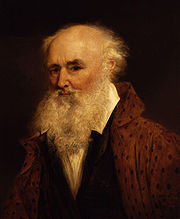 Born in London, and younger brother of William Ward the engraver, James Ward was influenced by many people, but his career is conventionally divided into two periods: until 1803, his single greatest influence was his brother in law George Morland; from that time, it was Rubens. From 1810 or so, Ward started to paint horses within landscapes; slightly later, he turned to very large-scale landscapes, of which Gordale Scar (Tate Gallery, London), completed in 1814 or 1815 and depicting Gordale Scar (Yorkshire) as an example of the sublime, is considered his masterpiece and a masterpiece of English Romantic painting. Gordale ScarWard devoted much of the period 1815-1821 to the painting of a gigantic work titled Waterloo Allegory (now lost); this neither was much praised nor brought in the revenue Ward had hoped for. The experience may have embittered him, and the deaths of his first wife and a daughter were among other tragedies. Like many artists of the time, Ward sought commissions from wealthy gentry of their favorite horses or their children. One such family that Ward painted and drew repeatedly, and whom he counted among his friends, were the Levett family of Staffordshire. One of Ward's best-known portraits was his "Theophilus Levett Hunting at Wychnor, Staffordshire" of 1817. Ward also painted a group portrait of three Levett children -- John, Theophilus and Frances Levett. (For the Levetts, see link to the Ward exhibit at the Yale Center for British Art.) In 1830, Ward moved to Cheshunt (Hertfordshire) with his second wife, but he continued to work, particularly on religious themes. A stroke in 1855 ended his work, and he died in poverty. James Ward was one of the outstanding artists of the day, his singular style and great skill set him above most of his contemporaries, markedly influencing the growth of British art. Regarded as one of the great animal painters of his time, James produced history paintings, portraits, landscapes and genre. He started off as an engraver, trained by William, who later engraved much of his work. The partnership of William and James Ward produced the best that English art had to offer, their great technical skill and artistry having led to images that reflect the grace and charm of the era. Family 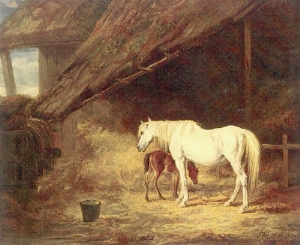 Primrose and Foal in Fodder Yard 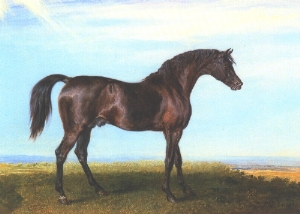 Smolenkos 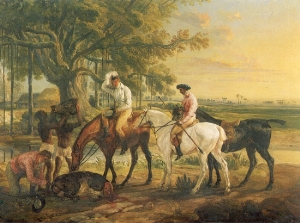 The Death of a Boar in India/1816 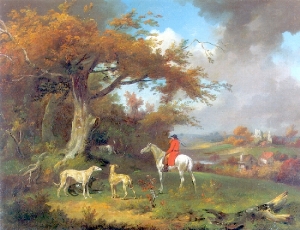 Huntsman and Greyhounds/1776 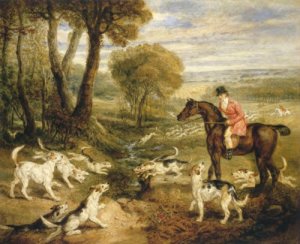 Hunting Scene/1835 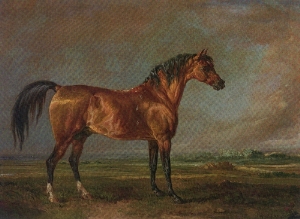 Arabian Stallion 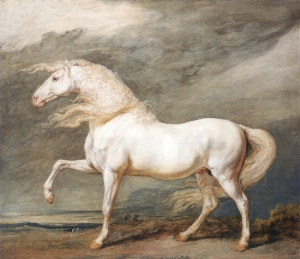 Adonis Favorite Charge of King George III/1826 |